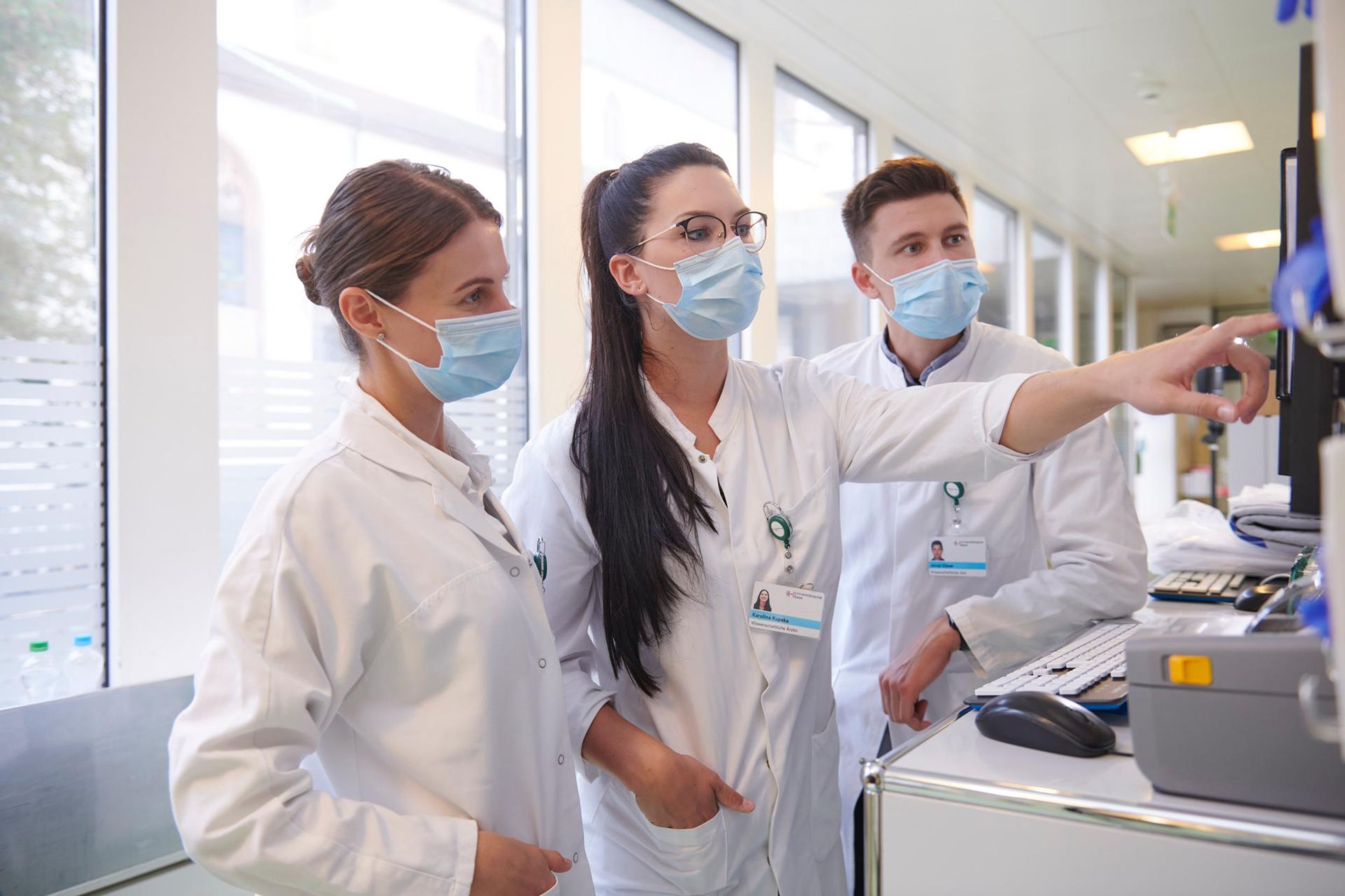
Three-shift model and gender equality: we are moving forward
Three-shift operation: flexible working time models in nursing care
In order to reduce the burden of three-shift work, the USB is introducing new working time models as a pilot project in nursing next year: In addition to the existing "early", "late" and "night" services, more flexible models are intended to relieve the strain on employees and ensure a better work-life balance. These new models are based on scientific findings and are to be piloted on various wards in 2023 and then extended to other professional groups if necessary.
The new shifts are to be created by adapting the planning to the individual needs of employees and wards. One example of this is the "parent services", where parents can look after their children in the mornings and evenings. These "flexi shifts" offer an active influence on the shift system and thus increase employee satisfaction. Such planning requires a good skill-grade mix in the team as well as process adjustments on the wards.
The aim of this project is to evaluate new working time models in shift operation in order to offer employees a health-promoting, attractive working environment.
Gender equality: targeted support for female doctors
There is still a need for action in terms of gender parity in the medical profession: the USB has set itself specific targets for the proportion of female doctors in senior management by 2029 - the proportion of female senior doctors has fortunately increased in 2022, while the other professional groups are on target. The targeted promotion of female doctors is a particular concern of the USB and there are three different promotion programs in place:
The "Aiming Higher" career program for female assistant doctors was launched this year as a pilot project. It was initiated by various Swiss university and cantonal hospitals in collaboration with the University of St. Gallen (HSG). The aim is to counteract the "gender gap" by strengthening the career paths of female assistant doctors. The 14-month program includes various online and on-site modules for coaching, mentoring and network expansion. Eight female assistant doctors from the USB successfully took part in the program - the program will take place again next year.
The two support programs "Antelope" and "Mentoring" in collaboration with the University of Basel have long been open to female doctors at the start of their academic careers. "Antelope" is aimed at female postdocs working towards a professorship and includes various individual coaching and training sessions. Female assistant and senior physicians who are on their way to habilitation qualify for "Mentoring". They meet regularly with a mentor and benefit from their experience.
Occupational health management: establishment of the BGM specialist unit
Occupational health management, or OHM for short, is an integral part of the University Hospital's employee offering. Measures for occupational safety and health protection as well as offers to promote health serve to strengthen and support employees and offer them a safe, functional and attractive working environment.
Due to the currently growing stress levels among many hospital employees, this topic is becoming an ever greater priority at the University Hospital and is to be continuously expanded. An important step in this direction is the establishment of the specialist unit for occupational health management on January 1, 2023, which will give the topic the necessary attention. The aim is to analyze and optimize existing measures and to better identify the reasons for the increasing stress on employees in the future. The specialist unit will also be responsible for the pilot project on the new working time models in three-shift operations.
